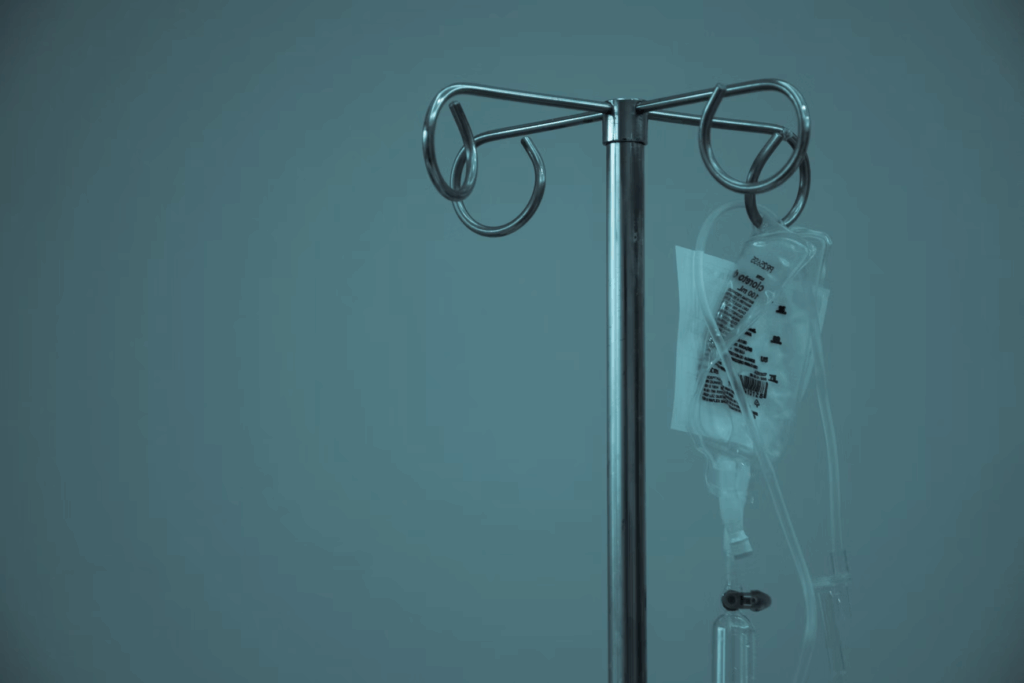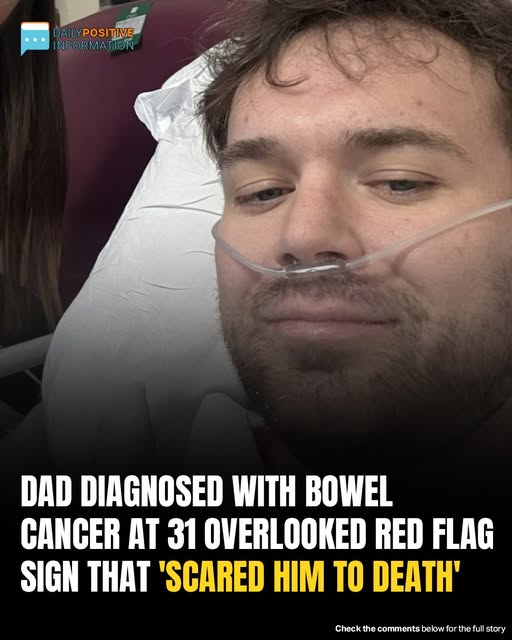Following months of modest but persistent symptoms, a 31-year-old father of three is asking others to pay attention to subtle signals of colon cancer.
In August 2024, Chris Kirt, a UK software developer, started having stomach cramps and alterations in his bowel habits. He put off getting medical help at first, dismissing the symptoms as ordinary intestinal problems. But one strange ailment finally made him take action.
“The biggest red flag for me was passing blood with zero pain,” Chris told his 12,300 TikTok followers. “That scared me more than anything. I knew in my heart something wasn’t right, it felt serious.”
Bowel cancer can appear with painless bleeding, despite the fact that many people link blood in the stool to painful illnesses like anal fissures. The NHS states that black or dark red blood in the stool, especially if there is no discomfort, may be an indication of malignancy.


Chris remembered other symptoms that gradually appeared, such as cramps, constipation, and urgent bowel motions.
Nevertheless, the inexplicable, painless bleeding was what finally made him seek medical attention.
Chris had to make the tough choice to pay for the diagnostic colonoscopy privately because of the lengthy waiting list. The medical staff found a sizable tumour in his colon during the examination.

“I was sedated but still aware. I remember looking at the screen and seeing a large, snotty mass on the side of my colon. The room went silent,” he said. “I asked, ‘What is that?’ I knew right away it was cancer.”
Chris had surgery to remove a third of his colon after receiving his diagnosis. Now that he is in remission, he uses social media to spread the word about early symptoms and the value of prompt diagnosis.
Researchers are looking into a variety of potential reasons for the recent spike in diagnosis, such as increased obesity rates, sedentary lifestyles, dietary modifications, and exposure to environmental pollutants.
According to BMJ, some research has indicated a possible connection between processed meals, microplastics, and even microorganisms like E. coli in the food chain.
Despite the fact that obesity is known to raise the risk of bowel cancer, Chris and many other younger patients do not fit this description.
“Cancer doesn’t always come with a clear warning,” he said. “Trust your instincts. If something feels wrong, get it checked.”
Chris is now urging people to take care of their bodies and to speak out for themselves when it comes to their health, especially young adults.
